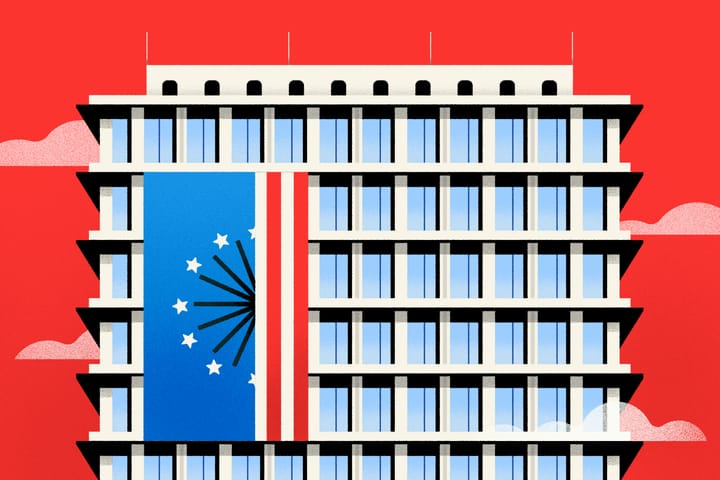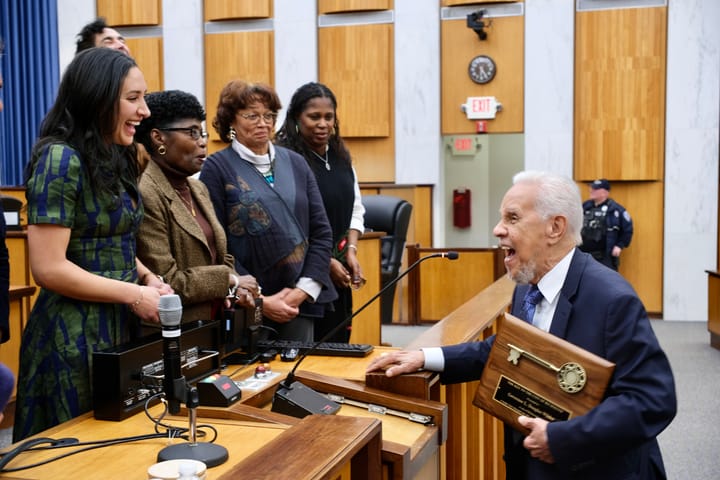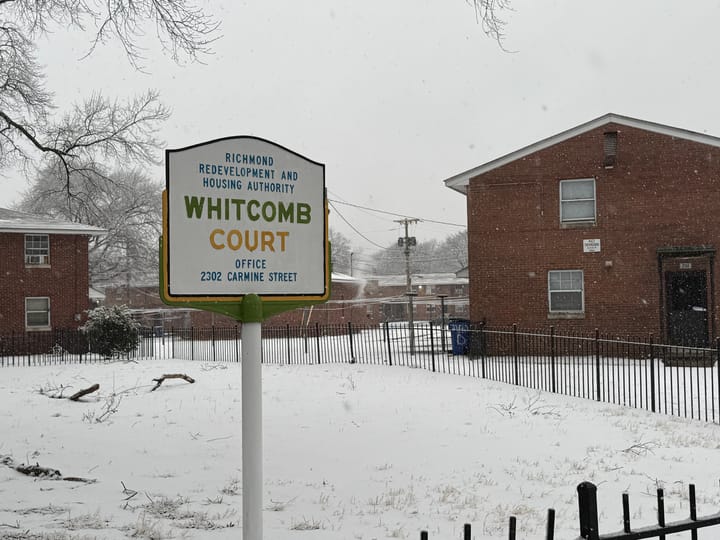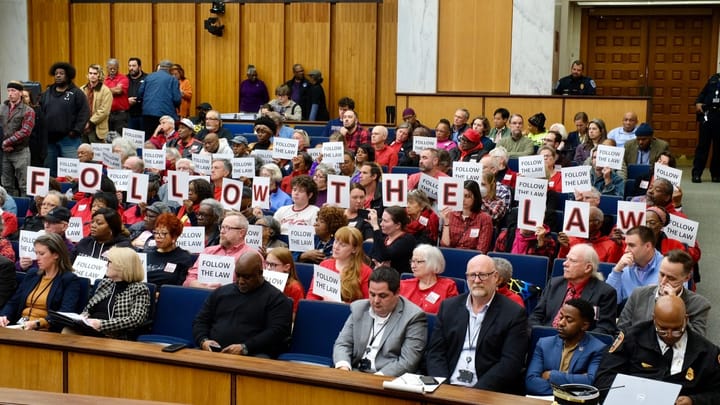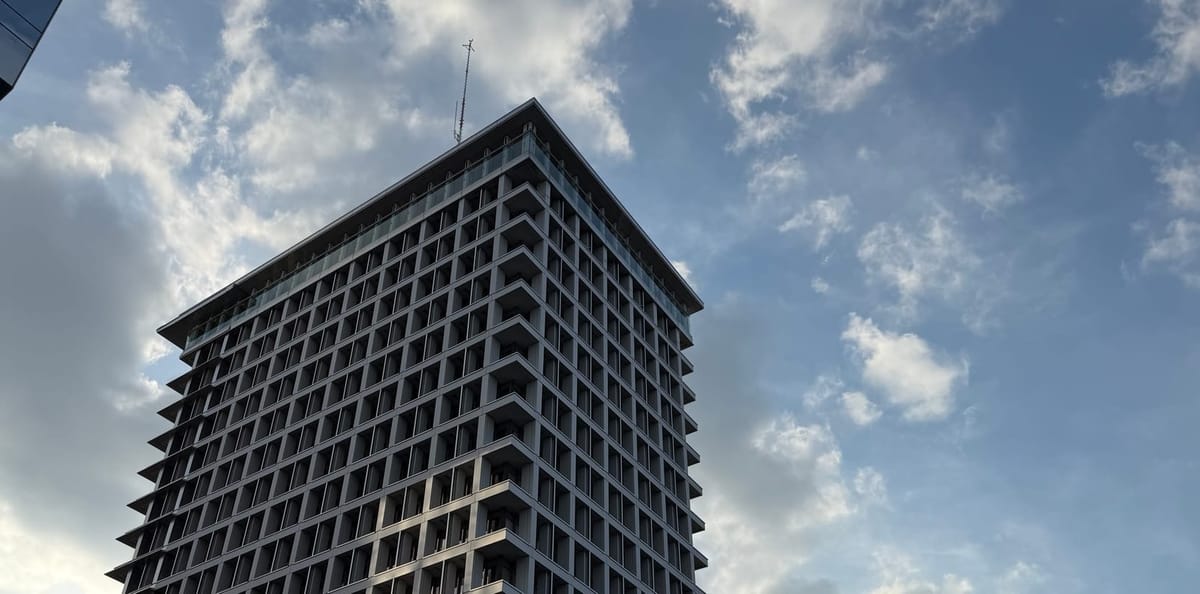
After spirited discussion, Council delays vote on real estate tax rate
Richmond's City Council heard a presentation from the city's top executives warning of the dangers of lowering the real estate tax rate, but ultimately elected not to take action on the issue Monday, deferring it to the Oct. 14 meeting.
Recent increases in property assessments triggered a state law that requires the city to consider rolling back the tax rate to protect residents against an increase in their tax payments.
Mayor Danny Avula and Chief Administrative Officer Odie Donald II laid out their case for keeping the current rate, noting that the budget passed earlier this year was built on the assumption that assessments would increase, and any decrease in the rate would result in needing to cut services.
The current rate is $1.20 per $100 of assessed home value. Three members of City Council have proposed a reduction in the rate to $1.16, which would still result in increased year-over-year revenue, but would provide some relief to taxpayers. (The rate would have to be lowered to $1.146 to remain revenue-neutral compared to last year.)
Donald emphasized that rolling the rate back to $1.16 would only save the average homeowner in Richmond 47 cents a day in property taxes.
"The impact of your reduction to (homeowners) is one that might be considered nominal, while the impact to the city and our ability to deliver service could be considered catastrophic," Donald said.
Avula said he is sympathetic to the plight of homeowners, but now isn't the time to lower the tax rate.
"I think sometime in the future, we've got to really look at a tax reduction," he said. "I do want to make the case that this is not the time for that decision."
The Mayor said by keeping the rate where it is, the city can better fund initiatives that help the people who need it most, who may not see as much relief from an across-the-board tax increase.
Some Council members pushed back against the assertion that the rate couldn't be reduced.
Fifth district Councilor Stephanie Lynch said holding the tax rate while Henrico and Chesterfield have both cut their rates recently sends the wrong message to residents.
"When people are making a choice about whether or not to stay in the city or go, the middle-class and the lower-income folks are saying paying these tax rates is like lighting money on fire that I don't have," she said. "We really need to have some tough conversations: Are we living within our means?"
Avula and Donald both noted that the assessment cycle will change after a freeze next year to align with the budget process, meaning the tax rate debate will happen simultaneous with the adoption of the budget beginning in 2027.
"Clearly there is work we need to do to tighten up the operation," Avula said, but called it a "multi-year" process to build the efficiency needed.
Council must take up the tax rate by Nov. 10 or the rate will roll back to $1.146.
The administration was hoping for a vote on Monday, but Councilor Sarah Abubaker (4th District) asked for a delay to allow for more discussion around the issue.
"To me, this conversation is much bigger and it's about our obligation as a city to do what is right," she said, adding, "quite frankly, it's a tax increase."
Abubaker and Councilor Reva Trammell (8th District) were the most vocal in supporting lowering the rate, while Councilor Kenya Gibson (3rd District) asked for more detailed data in order to make an informed decision.
Two other councilors, Lynch and Nicole Jones (9th District), called it an important conversation to have.
"We need to be just honest and transparent about that and figure out how we are going to compare apples-to-apples, and say, this is what you're going to get if you do roll the rate back, but then on the flip side of that, if we give you a rebate or a refund, that's just a one-time," Jones said.
"It just seems like it's a circle that we are going around, that there's really no real relief."
Lynch also objected to having the debate during the council's informal session, instead of during the formal period when more members of the public are on hand and the proceedings are televised.
After about an hour of debate during the informal session, Council President Cynthia Newbille (7th District) closed the discussion, promising more debate during the formal session.
However, the formal session began with Abubaker's proposal to table the proposals until Oct. 14, which passed 5-3 and ended discussion, at least for the night.
Contact Michael Phillips at mphillips@richmonder.org.
Note: This article has been corrected to note that Councilor Kenya Gibson did not give support to either plan, but requested more data in order to make an informed decision.


